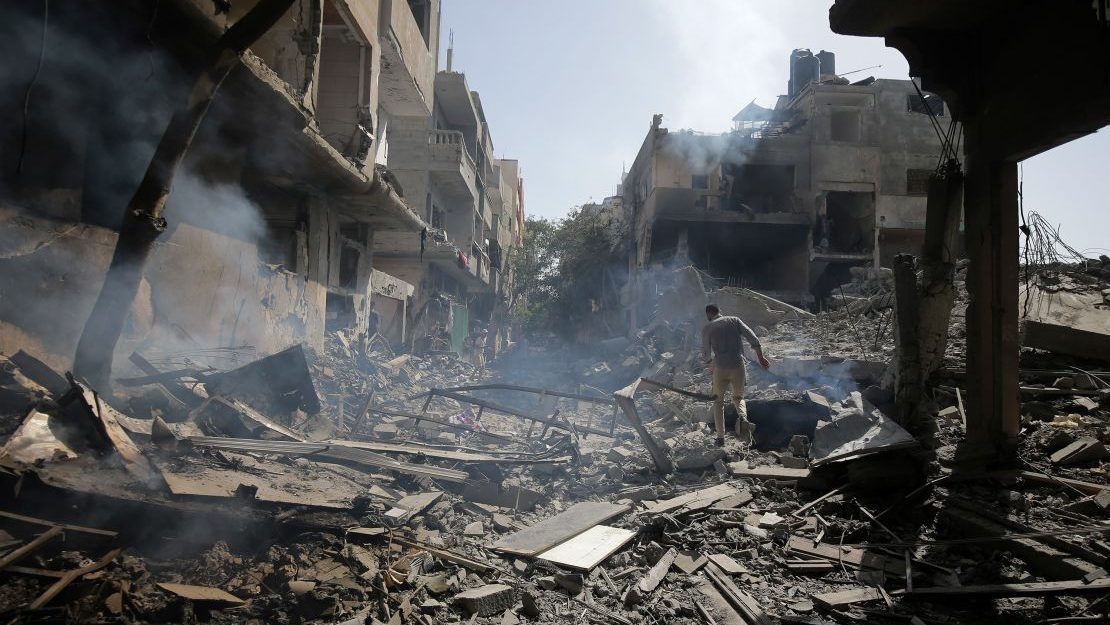US Resumes Aid to Gaza in the Midst of Hostage Rescue Operation
The US has resumed its airdrops of humanitarian aid to Gaza. This comes shortly after operations were temporarily halted due to Israeli military activities in the northern region. A recent drop included over 10 metric tons of meals, part of a larger effort that has seen over 1,050 metric tons of assistance provided. These efforts are part of a sustained campaign, with more drops planned in the future. The airdrops were briefly paused due to 'kinetic operations,' according to Vice Admiral Brad Cooper of CENTCOM, but resumed following the repair of a US-built pier off Gaza that was damaged in rough seas.
In related developments, a Gaza resident claimed to have witnessed Israeli special forces disguised as Hamas fighters during a rescue operation. These operations have resulted in intense crossfire and missile exchanges, making the situation on the ground even more chaotic. Notably, Israeli forces utilized disguise tactics to rescue four hostages, an approach that has drawn comparisons to the historic 'Operation Entebbe’ of 1976.
Israeli military (IDF) claims point to a Gaza-based journalist, Abdallah Aljamal, as being involved in the hostage scenario; however, these claims remain unsupported by evidence. The allegation is part of a larger narrative that includes accusations against Aljamal and subsequent discrediting of his professional affiliations. Al Jazeera and other international bodies have refuted these claims, labeling them as misinformation attempts aimed at damaging the reputation of the journalist and the broader media landscape.
The recent rescue operation, the largest in the current conflict's eight months, resulted in freeing hostages Noa Argamani, Almog Meir Jan, Andrey Kozlov, and Shlomi Ziv. Comparisons have been drawn to 'Operation Entebbe' due to the complexity and daring nature of the mission. This rescue comes at a time when Israeli Prime Minister Benjamin Netanyahu faces increasing pressure to conclude the ongoing hostilities and focus on returning the remaining hostages. The operation has received praise from various Israeli leaders and has been portrayed as a significant victory amidst the prolonged conflict.
Globally, protest against Israeli military actions in Gaza is growing, with several countries and institutions voicing their opposition. Countries such as Spain, Norway, and Ireland have officially recognized the Palestinian state, while others like the Maldives have banned Israeli entry. Economic repercussions include Turkey boycotting exports to Israel and France canceling Israel's participation in a major arms exhibition. Furthermore, corporate actions like McDonald's reacquiring its Israeli franchises highlight the broader economic impact and shifting global sentiments. Haaretz identifies these developments as indicative of a larger diplomatic and economic isolation of Israel.
- The intensity of the global protests underscores the growing international impatience with Israel's military strategies in Gaza. The diplomatic recognitions by European countries signal a shift in global perspectives, potentially impacting Israel's long-term diplomatic standing. The economic ramifications are stark, reflecting the increased costs of living within Israel and further isolating its economy.
- In a surprising move, Pri-A-Manje and McDonald's have altered their business strategies in response to the conflict. These corporate maneuvers are attempts to mitigate backlash and align with evolving global sentiments. The advanced technology sector in Israel is also feeling the strain, experiencing a decline in foreign investments.
- The challenges facing Israel are exacerbated by a perceived sluggish governmental response. Criticisms focus on ineffective policies and a lack of clear measures to address the mounting economic pressures. As the global boycott movement gains traction, the situation for Israeli consumers could become increasingly dire.






